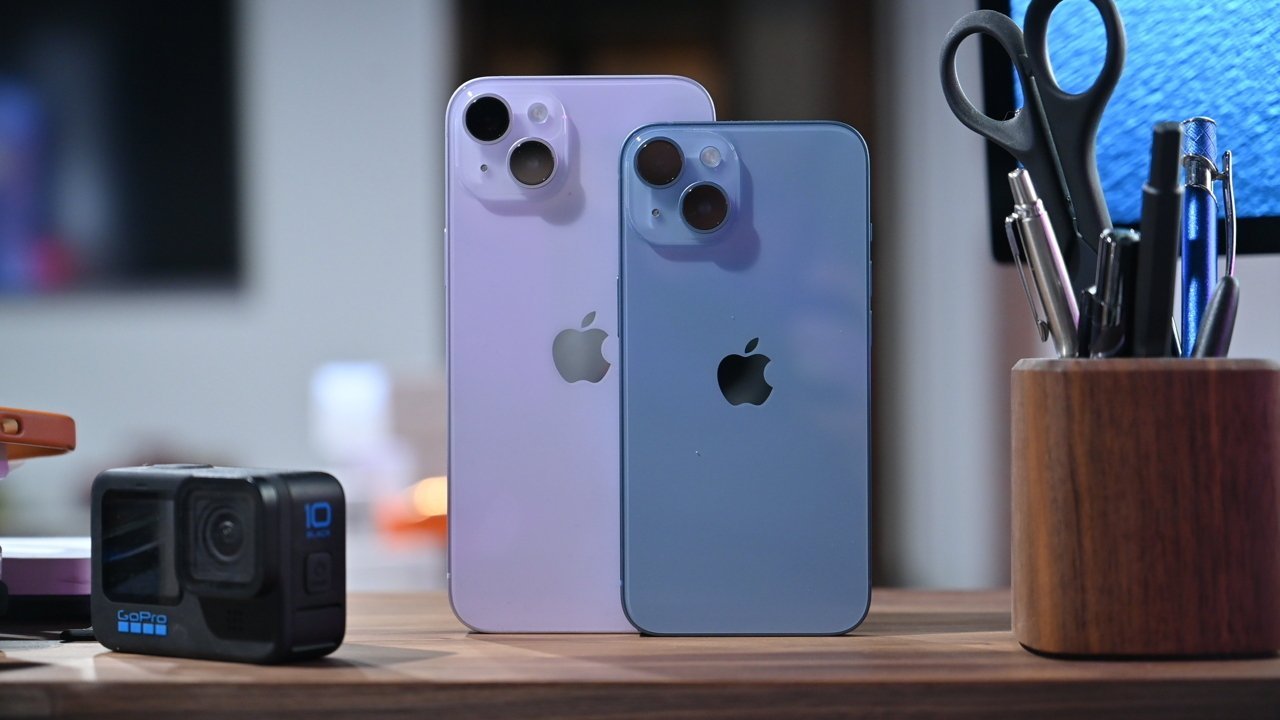Apple has pulled the iPhone 14 and the third-gen iPhone SE from its online Apple Store in a number of EU countries, all to abide by inbound charger regulations.
Earlier in December, it was rumored that Apple would discontinue sales of the iPhone 14 generation of devices, as well as the current iPhone SE, in the European Union by the end of 2024. Two weeks later, it has become a reality.
The online version of the Apple Store covering many EU territories now do not list the iPhone 14 nor the iPhone SE. The top menu for the iPhone section of the regional Apple website now has nothing between the iPhone 15 and the Compare options in affected countries, skipping over where the iPhone 14 and SE used to exist.
The list of affected countries checked by AppleInsider includes France, Germany, Austria, Italy, the Netherlands, and Sweden, as well as others within the bloc. While the UK isn't affected and still lists the models, Ireland does not.
Apple has not provided an official explanation for the removals of the models, but it is widely believed that the change is due to regulations set to become active at the start of 2025.
In October 2022, ministers of the EU Council finalized approvals for the common charger directive, which would require smartphones, tablets, and headphones to be sold equipped with USB-C ports in 2024. The aims of the directive are to make it easier for consumers to get the right charger for their hardware, and to minimize e-waste.
By pulling sales of Lightning-equipped models late in the year, Apple therefore abides by the directive in the affected countries, just in time for the end of the year.
Not an entire block
The regulation doesn't forbid the sale of older smartphones designed before the mandate's existence, only those designed since its passing. In theory, this could mean Apple could legally sell older iPhone models with Lightning, without being affected by the law.
The rules also don't impact resellers, which will be able to continue selling the pulled models while they still have available stock. Sourcing new supplies of the models from Apple will not be allowed.
It also won't change anything in the second-hand market, either, as it will apply to the sale of new devices.
In other countries where the sales still continue, it may not necessarily be a factor for long. In October, the UK government was considering revising the adoption of the charger mandate.
 Malcolm Owen
Malcolm Owen




-xl-m.jpg)


-m.jpg)







 William Gallagher
William Gallagher
 Mike Wuerthele
Mike Wuerthele


 Thomas Sibilly
Thomas Sibilly
 Wesley Hilliard
Wesley Hilliard
 Marko Zivkovic
Marko Zivkovic







14 Comments
Is this actually “better” for EU customers who do not want the latest Apple technology and are more
comfortable using the older technology because the barn door is already open and the horse got out years ago with lightning cables.
So the customer ends up paying more for tech that they do not want all in the name of compatibility with competitors that they never wanted in the first place.
The whole 'USB-C connector for charging on everything' makes a lot of sense. I can travel with one charger and one cable to charge iPhone, iPad, earPods, MBP, camera (Canon), power bank, Kindle etc.
Change always comes with pain and that's what we're currently (!) seeing.